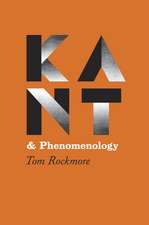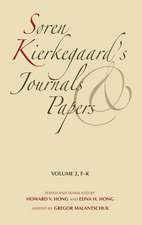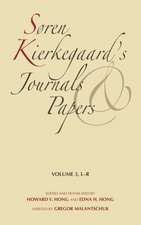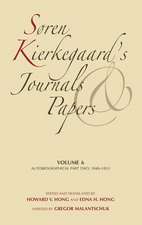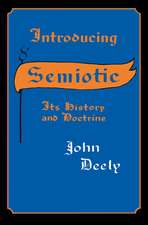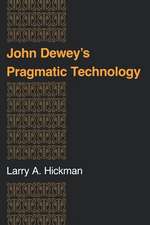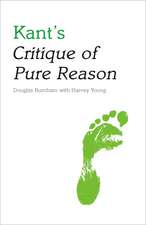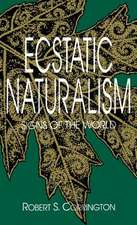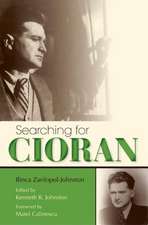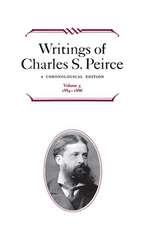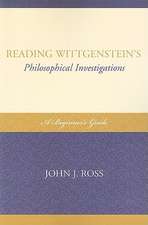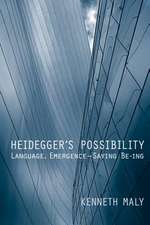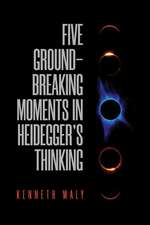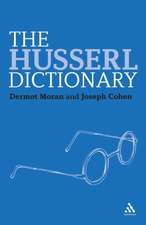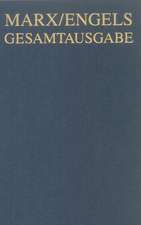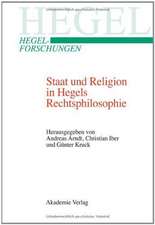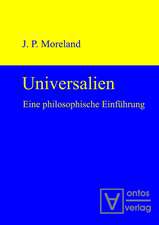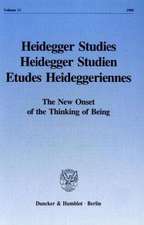Phenomenological Interpretation of Kant`s Critique of Pure Reason
Autor Martin Heideggeren Limba Engleză Hardback – 21 noi 1997
Librarul mai recomandă
Preț: 342.11 lei
Nou
Puncte Express: 513
Preț estimativ în valută:
65.47€ • 68.27$ • 54.41£
65.47€ • 68.27$ • 54.41£
Carte tipărită la comandă
Livrare economică 21 martie-04 aprilie
Preluare comenzi: 021 569.72.76
Specificații
ISBN-13: 9780253332585
ISBN-10: 0253332583
Pagini: 320
Dimensiuni: 165 x 240 x 23 mm
Greutate: 0.64 kg
Editura: MH – Indiana University Press
ISBN-10: 0253332583
Pagini: 320
Dimensiuni: 165 x 240 x 23 mm
Greutate: 0.64 kg
Editura: MH – Indiana University Press
Notă biografică
Parvis Emad is Emeritus Professor of Philosophy at DePaul University and the founding co-editor (with Kenneth Maly) of Heidegger Studies. Also with Maly, he has translated Hegel s Phenomenology of Spirit by Martin Heidegger and Encounters and Dialogues with Martin Heidegger by Heinrich Wiegand Petzet.Kenneth Maly is Professor of Philosophy at the University of Wisconsin-LaCrosse and co-editor (with John Sallis) of Heraclitean Fragments. With Parvis Emad he is currently translating Beitrage zur Philosophie (Vom Ereignis) by Martin Heidegger."
Textul de pe ultima copertă
The text of Martin Heidegger's 1927-28 university lecture course on Emmanuel Kant's Critique of Pure Reason presents a close interpretive reading of the first two parts of this masterpiece of modern philosophy. In this course Heidegger continues the task he enunciated in Being and Time as the problem of dismantling the history of ontology, using temporality as a clue. Within this context the relation between philosophy, ontology, and fundamental ontology is shown to be rooted in the genesis of the modern mathematical sciences. Heidegger demonstrates that objectification of beings as beings is inseparable from knowledge a priori, the central problem of Kant's Critique. He concludes that objectification rests on the productive power of imagination, a process that involves temporality as the basic constitution of humans as beings. This is an essential work for students of Heidegger, Kant, modern philosophy, and contemporary phenomenology.


